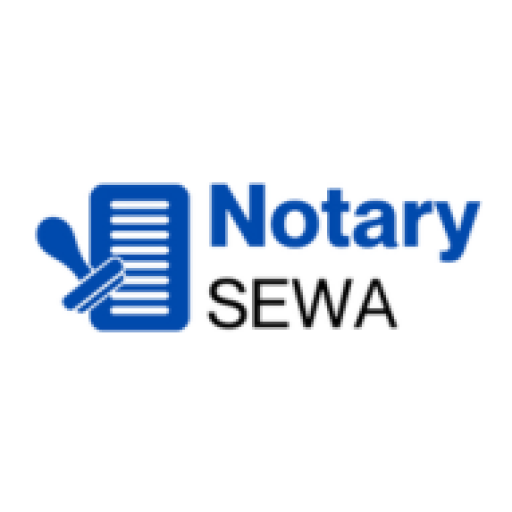
Introduction
Apostille certification plays a vital role in legalizing sensitive documents for international use by ensuring their authenticity and acceptance across different jurisdictions. In Nepal, this process is regulated by the Ministry of Foreign Affairs (MOFA) under the Hague Convention, streamlining document verification for seamless global recognition. In Nepal, this process is governed by the Ministry of Foreign Affairs (MOFA) under international legal frameworks, including the Hague Convention. Whether for business, immigration, education, or personal matters, the Apostille process simplifies document verification under the Hague Convention. This article provides a comprehensive guide on the role of Apostille certification, particularly in the Nepalese context, outlining its importance, the process involved, and its benefits.
What is Apostille Certification?
An Apostille is an official authentication that verifies the legitimacy of a document issued in one country for recognition in another. It eliminates the need for further legalization from embassies, making cross-border document usage seamless.
Key Features:
- Issued by Competent Authorities – In Nepal, the Ministry of Foreign Affairs (MOFA) handles document authentication.
- Recognized by Hague Convention Countries – Ensures acceptance in over 120 nations.
- Eliminates Redundant Legalization Steps – Reduces bureaucratic hurdles for international use.
For more details, visit the Apostille of Documents Service Page. This service is essential for Nepalese citizens and businesses engaging in international legal matters, ensuring compliance with global regulations and avoiding unnecessary legal hurdles.
Importance of Apostille for Sensitive Documents
Sensitive documents require proper authentication to prevent fraud and legal complications. Apostille plays a vital role in securing these documents for various legal, financial, and personal transactions.
Common Sensitive Documents That Require Apostille:
- Personal Documents: Birth certificates, marriage certificates, divorce decrees, and affidavits.
- Educational Documents: Degrees, transcripts, diplomas, and other academic records.
- Business & Corporate Documents: Contracts, company registration certificates, and board resolutions.
- Legal & Court Documents: Power of Attorney, affidavits, and notarized statements.
For related services, explore Legalization of Documents and MOFA Attestation Services.
Apostille Process in Nepal
The process of obtaining an Apostille for documents in Nepal involves several essential steps. Here’s a simplified guide:
- Notarization: The document must first be notarized by a registered notary public. Learn more about notarization services.
- Verification by Concerned Authority: The issuing department (e.g., university, municipal office) verifies the document.
- Submission to MOFA: Once verified, the document is submitted to the Ministry of Foreign Affairs for final authentication.
- Apostille Stamp Issuance: Upon approval, the Apostille stamp is affixed, making the document legally valid for use abroad.
By following this process, individuals and businesses can ensure their documents are authentic, reducing risks of forgery, legal disputes, and potential rejections from foreign authorities.
Benefits of Apostille for International Transactions
Apostille certification is essential for individuals and businesses dealing with international legal matters. Key advantages include:
- Global Recognition: Accepted in over 120 Hague Convention member countries.
- Simplified Verification: Eliminates embassy legalization requirements.
- Prevents Document Fraud: Ensures authenticity and integrity.
- Legal Compliance: Necessary for work permits, immigration, and overseas education.
For an in-depth understanding, read Understanding the Process and Benefits of Apostille of Documents, which provides a step-by-step breakdown of the benefits and application process for Nepalese citizens.
Apostille vs. Legalization: What’s the Difference?
While Apostille simplifies international document recognition under the Hague Convention, legalization is required for countries that are not members of the convention.
| Factor | Apostille | Legalization |
| Applicable Countries | Hague Convention Members | Non-Hague Convention Countries |
| Issued By | Ministry of Foreign Affairs (MOFA) | Embassies & Consulates |
| Time Required | Faster Processing | More Lengthy & Complex |
| Cost | Generally Lower | Higher due to multiple verifications |
If your destination country is not part of the Hague Convention, consider Legalization of Documents.
Common Challenges in the Apostille Process
Despite its efficiency, obtaining an Apostille in Nepal may present challenges such as:
- Incorrect Documentation: Missing or incomplete details can lead to rejection.
- Processing Delays: High demand can cause extended processing times.
- Lack of Awareness: Many individuals are unaware of the correct procedures.
- Fraudulent Services: Engaging unauthorized agents can lead to issues.
To prevent these issues, it is advisable to seek assistance from trusted service providers like Notary Sewa, which offers professional document authentication services to streamline the Apostille process efficiently.
How Apostille Protects Against Document Fraud
Apostille serves as a safeguard against document forgery and fraud by ensuring legitimacy through official government authentication. This protects:
- Individuals from Identity Theft: Secures personal records from tampering.
- Businesses from Contractual Disputes: Ensures corporate documents are genuine.
- Immigration & Visa Applicants: Prevents issues due to fake documents.
For more insights, read How Apostille of Documents Protects Against Document Fraud.
Related Legal Services
If your documents require additional verification, consider these related services:
- Affidavits & Sworn Statements
- Power of Attorney Services
- Witnessing Signatures
- Translation of Official Documents
Explore all legal services offered by Notary Sewa.
Conclusion
Apostille certification is an essential process for legalizing sensitive documents, ensuring their international validity while preventing fraud. To streamline your document authentication, consult professional services like Notary Sewa for expert guidance and support. Whether for immigration, education, business, or legal proceedings, understanding and following the Apostille process correctly can save time and effort. For professional guidance and a hassle-free authentication experience, visit Notary Sewa’s Apostille Services and let experts handle the legalization of your sensitive documents.
For further reading, check out Understanding Apostille vs. Notarization to differentiate between these critical processes.
